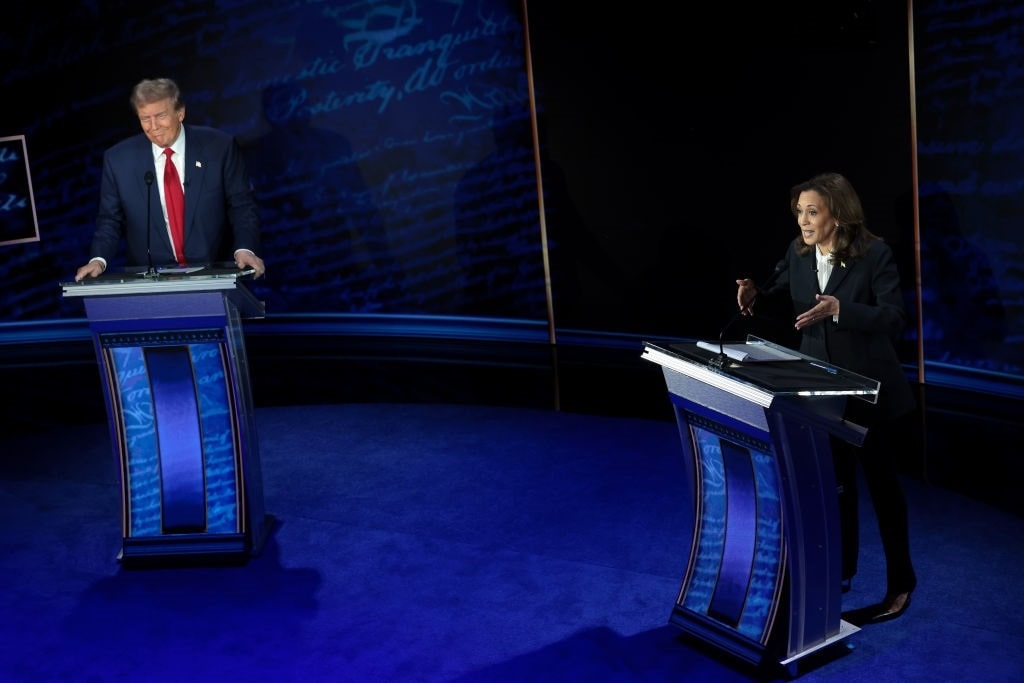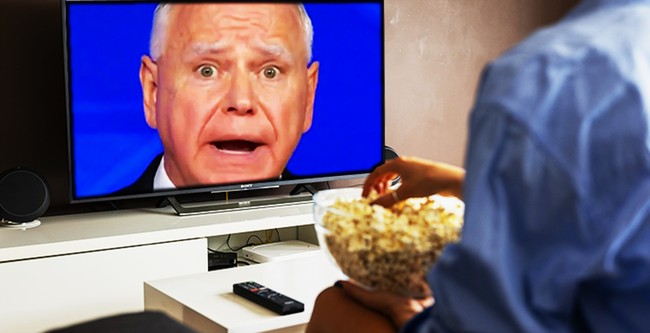
This article was originally published on Liberty Nation - Opinion. You can read the original article HERE

Inflation has ravaged personal finances. Real wages have been paralyzed in subzero terrain for the last three-plus years; food prices have rocketed 22%; credit card debt is at an all-time high, and the public’s purchasing power has eroded 16%. A flood of surveys suggests Americans say they do not have emergency funds and that some have fallen behind on their retirement savings. In addition to relief from price inflation, voters seek respite through public policy pursuits presented by the presidential contenders. Is Vice President Kamala Harris or former President Donald Trump better for the typical household’s finances? Let’s break down their ideas.
Dollars and Cents Behind Trump Policies
Can Trump eliminate taxes on Social Security benefits? Will he exempt overtime pay from the income tax? Is removing taxes on tips a feasible proposal? Reports suggest he is considering abolishing the income tax in favor of tariffs. Trump has ignited a tidal wave of tax relief strategies, which probably seem like music to the ears of millions of Americans who loathe handing over a sizable share of their hard work to the federal government. Whether these will realistically be implemented remains to be seen, but determining their impact on individuals’ wallets is a worthwhile endeavor.
Today, approximately 40% of Social Security recipients pay federal income taxes on their retirement benefits. Up to 85% of Social Security benefits can be taxable – up to 50% between $25,000 and $34,000, and up to 85% on more than $34,000 – though the amount depends on the income and filing status. In the current economic climate, this can be concerning. According to The Senior Citizens League, 67% of seniors rely on Social Security for more than half their income. Other studies show that the present generation of workers anticipates depending primarily on Social Security for their living expenses. So, exempting benefits from taxation would save retirees lots of money.The challenge? A recent Committee for a Responsible Federal Budget report suggested that the Trump plan would accelerate the near-century-old program’s insolvency, resulting in an automatic 20% reduction in benefits by 2031. In the near term, the concept would be a handsome injection for recipients. In the long term, the idea could exacerbate its bankruptcy.
According to the Bureau of Labor Statistics data, about 48 million individuals worked in tipped occupations. Removing taxes on tips would be stimulative for these workers employed in the sustenance sectors of food, leisure, and hospitality. While statistics on how much employees receive in tips are minimal, the average annual salary of restaurant servers in the US is about $32,000. Additionally, Statista data show that most people (64%) spend between $11 and $30 dining out. So, if patrons are tipping 20%, hardworking servers can earn up to $6 tax-free per patron.
Is the United States economy about to receive a hefty dose of labor productivity? This was the initial reaction after Trump announced efforts to erase taxes on overtime pay, a policy that would benefit roughly 34 million Americans who worked an average of 41 or more hours per week last year. Economists have debated how much of an impact it would have since the Republican presidential candidate’s announcement. Put simply, the ones who would benefit are staff currently working 41-plus hours, as companies would be unlikely to add to overtime hours since there is little benefit to their balance sheets.
Finally, tariffs: Trump has outlined his trade agenda as a universal 10% across-the-board tariff, a 60% levy on all Chinese imports, and potentially higher rates in other circumstances. He has suggested that companies who keep operations at home and refrain from shipping manufacturing overseas would not face tariffs and instead receive a lower corporate tax rate. The mountain of data and economic literature suggests that tariffs, whether instituted by Trump or the current administration, have negatively harmed domestic manufacturing and US consumers, be it a decrease in employment or higher prices. Additional research shows that tariffs might save a few jobs in a shielded industry but at a hefty price tag, causing inefficiency and economic deterioration. Of course, Americans’ wallets are the main topic of conversation, and the evidence shows that pre-pandemic prices for various household goods, such as washing machines and dishwashers, have risen due to tariffs.
Ultimately, eviscerating taxes from Social Security benefits and tips would boost finances for tens of millions of people. However, depending on how the Trump-Biden-Harris tariffs proceed, the gains could be offset by losses induced by levies.
Making Cents of Kamalanomics
Vice President Harris has emulated some of her opponents’ policies, such as tariffs and no taxes on tips. However, while she has not announced a litany of direct stimulus programs, a few proposals could help households. Kamalanomics has primarily focused on raising taxes to increase revenues that are already at record highs.
The most significant idea emanating from her campaign, which was also plagiarized, er, borrowed from Sen. JD Vance (R-OH), is to revive and permanently implement the American Rescue Plan’s child tax credit of $3,600 for children under six and $3,000 for children under 18. Additionally, the Democratic contender has proposed increasing the child tax credit for newborns to $6,000 in the first year of life.
Another centerpiece of Harris’s economic agenda is a $25,000 tax credit for first-time homebuyers over four years. However, this measure would automatically raise house prices by $25,000, so the benefit would be negligible at a time when the cost of purchasing a single-family property is at a record high.
2024 and Your Wallet
Every election cycle, Republicans and Democrats try to influence voters with a wish list of public policy proposals. If taking an axe to the income tax sounds too good to be true, it probably is (what happens to the 60% of mandatory spending?). If $25,000 for a down payment appears like a sweet deal, voters should read Faust (how would this bring down home prices?). For the most part, Harris and Trump are hurling grandiose schemes with little chance of passing the House or Senate. No matter who resides in the White House, government only grows.
This article was originally published by Liberty Nation - Opinion. We only curate news from sources that align with the core values of our intended conservative audience. If you like the news you read here we encourage you to utilize the original sources for even more great news and opinions you can trust!










Comments